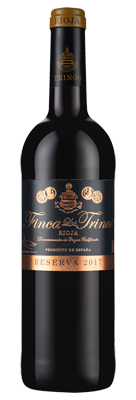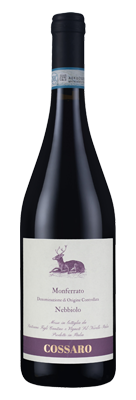Filter by
- This rare Garnacha Blanca from Navarra is like sunshine in a glass!$22.00 RRPfrom $14.99 when you mix 12+
- Exquisite, pale-hued, herbal-scented Provence rosé, using the very pick of the harvest’s grapes.$40.00 RRPfrom $29.99 when you mix 12+
- 93pt Mountadam magic from the estste's elevated Eden Valley vineyards.$28.00 RRPfrom $19.99 when you mix 12+
- Enjoy a top-quality Rioja Reserva with eight years’ of maturity. Complex and classy.$38.00 RRPfrom $25.99 when you mix 12+
- For fans of mature Spanish reds, La Cantera hits the mark, with silky red fruit and toasty oak.$28.00 RRPfrom $19.99 when you mix 12+
- A gorgeous, juicy popular offering from a five-star WA estate.$24.00 RRP$16.99 when you mix 12+
- Gold-winning,bright, fruit-forward, Marlborough Pinot Noir from one of the region’s finest estates.$35.00 RRPfrom $35.00 when you mix 12+
- Nicely-balanced, elegant, Italy-meets-Aus Prosecco from vineyards in the King Valley.$25.00 RRPfrom $18.99 when you mix 12+
- "...succulent" and "very bright" 90pt Adelaide Hills Sangiovese.$42.00 RRPfrom $36.99 when you mix 12+
- "Juicy and bouncy... very appealing indeed... 93pts. Great Value." (Halliday)$28.00 RRPfrom $26.99 when you mix 12+
- A succulent 94pt Sangiovese from Clare Valley’s dynamic Claymore Wines team.$29.99 RRP$21.99 when you mix 12+
- This Gold-winning , 93pt GSM is “ … a juicy, vibrant fruit train.” (Halliday)$36.00 RRPfrom $29.99 when you mix 12+
- New exclusive Malbec from Clare Valley's superb Jim Barry estate.$35.00 RRPfrom $23.99 when you mix 12+
- "A Tour de Force. 94pt" (Ned Goodwin, Halliday) Petite Sirah (aka Durif) from Elena Brooks.$120.00 RRPfrom $110.00 when you mix 12+
- Fresh Adelaide Hills Chardonnay from cricket legend Ricky Ponting and winemaker Ben Riggs.$25.00 RRPfrom $23.99 when you mix 12+
- Elegant and inviting, nicely balanced Chardonnay from Margaret River.$25.00 RRPfrom $21.99 when you mix 12+
- Gold, 94pt cool climate, flagshipChardonnay – very stylish drop from Jason Brown.$45.00 RRPfrom $38.99 when you mix 12+
- "Captivating" 93pt Tempranillo from cool-climate vineyards and the excellent Bryan Currie.$45.00 RRPfrom $39.99 when you mix 12+
- Fine, fresh, elegant Nebbiolo from Piedmont. A taste of Barolo, but without the wait or price tag.$38.00 RRPfrom $29.99 when you mix 12+
- Enjoy an elegant, nicely poised Adelaide Hills Pinot Noir from legendary winemaker Ben Riggs.$25.00 RRPfrom $21.99 when you mix 12+
- Superb, silky Reserva from the heights of Rioja Alta. Summer berry fruits with hints of vanilla.$42.00 RRPfrom $29.99 when you mix 12+
- Portugal’s fresh, lemony, stony-fresh Vinho Verde is a treat especially from such a good winemaker.$25.00 RRPfrom $16.99 when you mix 12+
- $24.00 RRPfrom $15.99 when you mix 12+
- Ripe Merlot-rich Bordeaux red with a great Gold-medal history, from our own Castillon estate.$45.00 RRPfrom $33.99 when you mix 12+





























